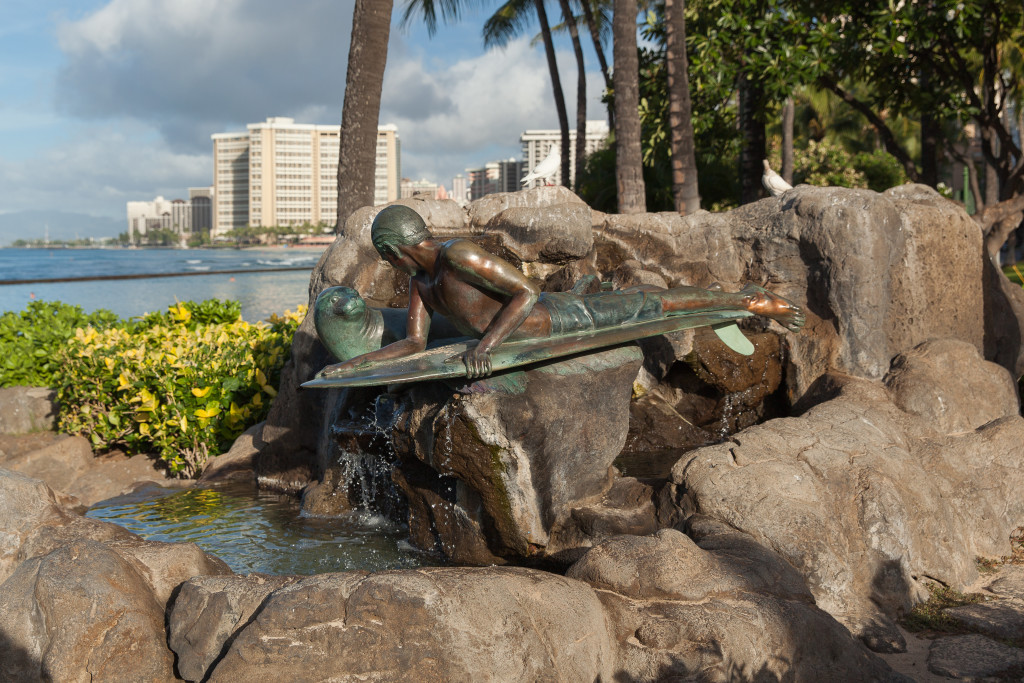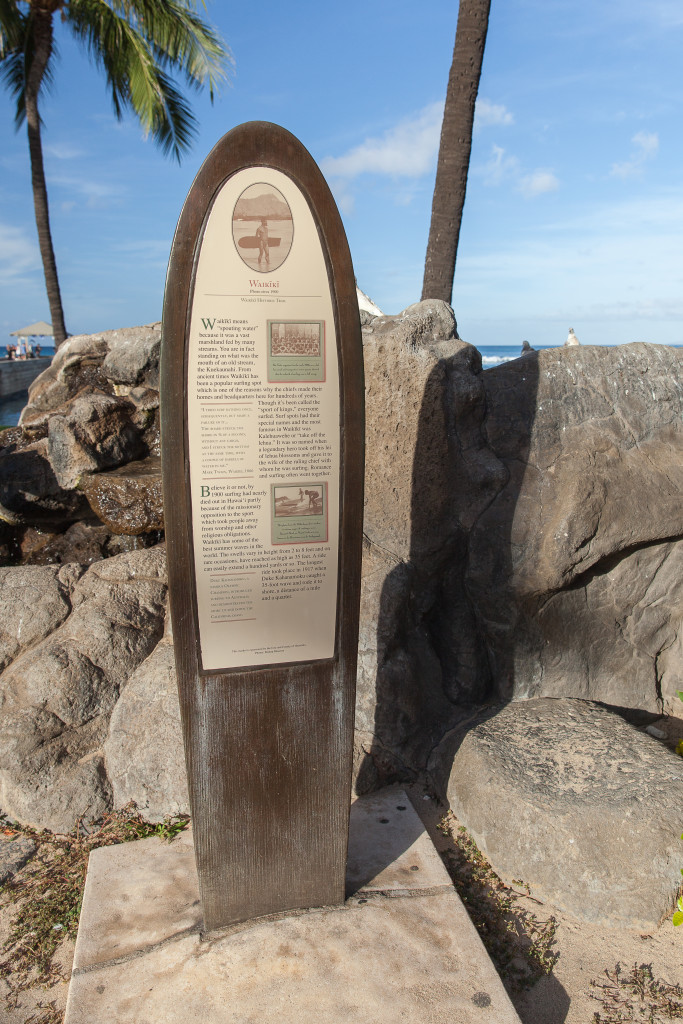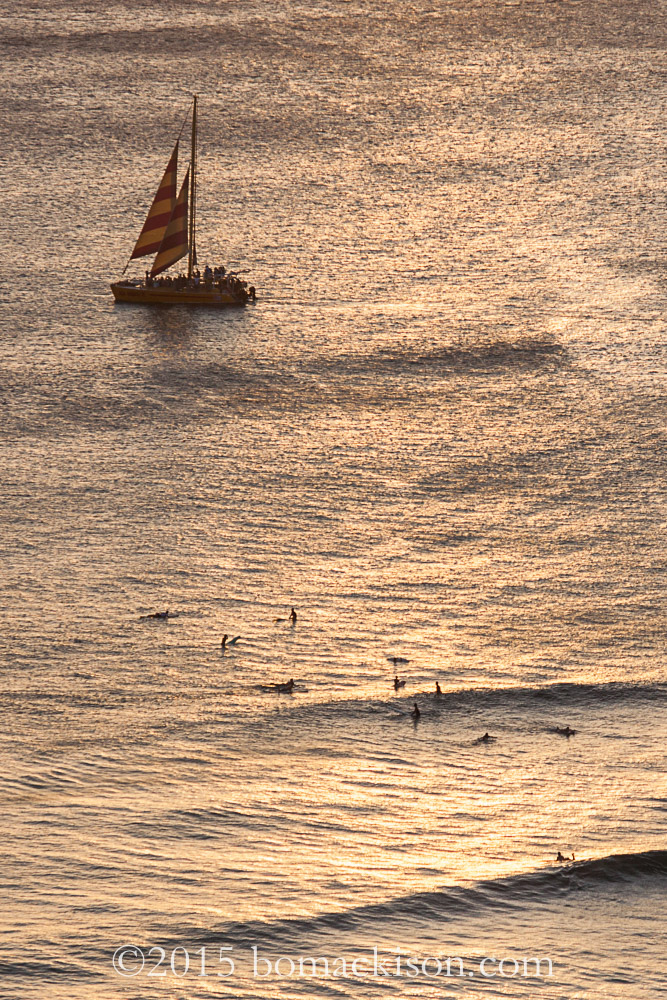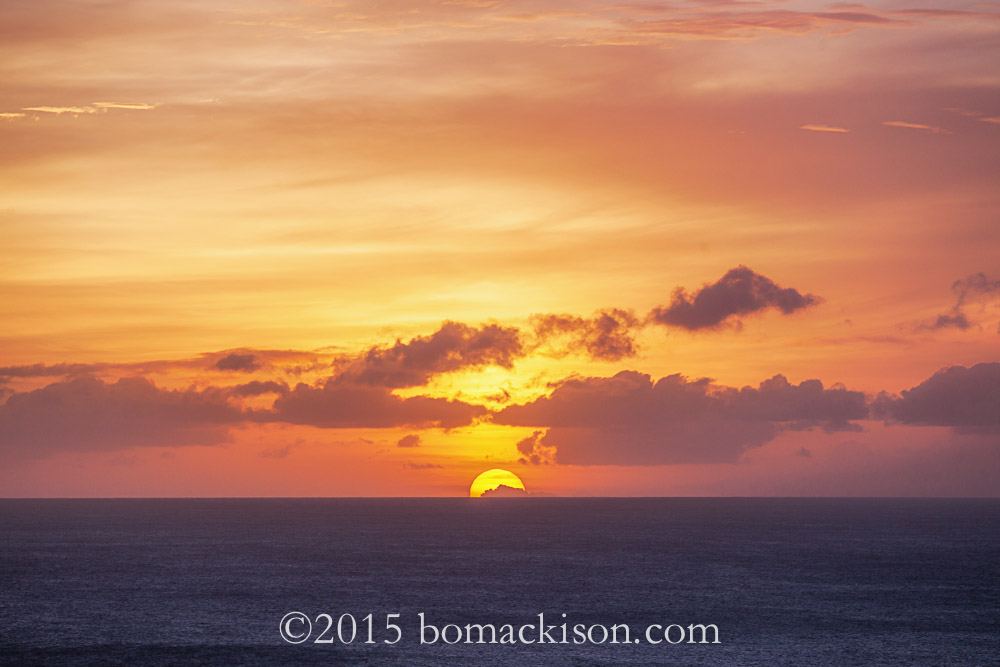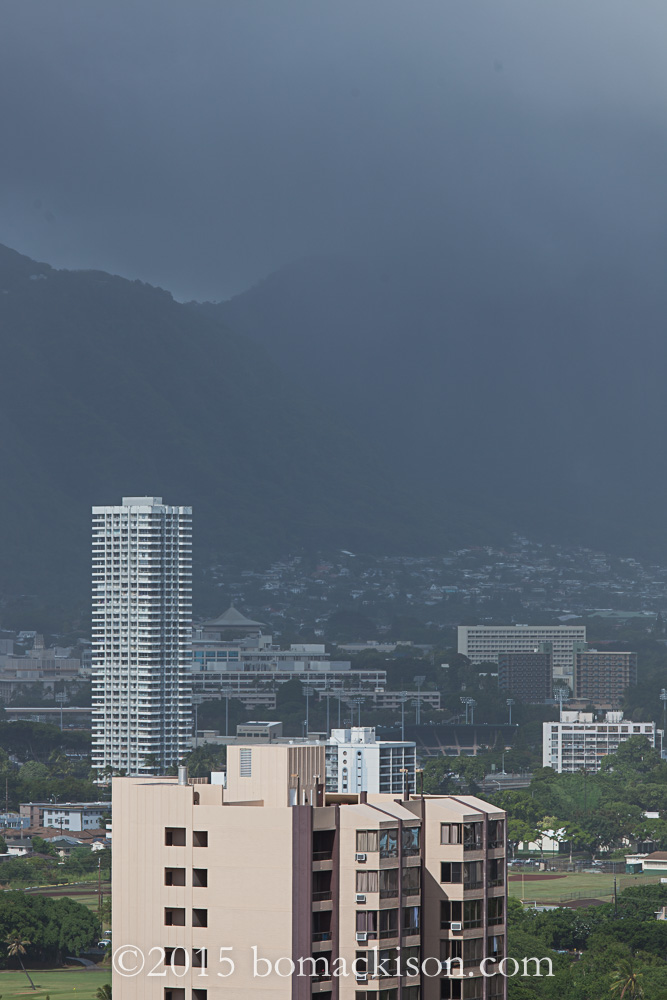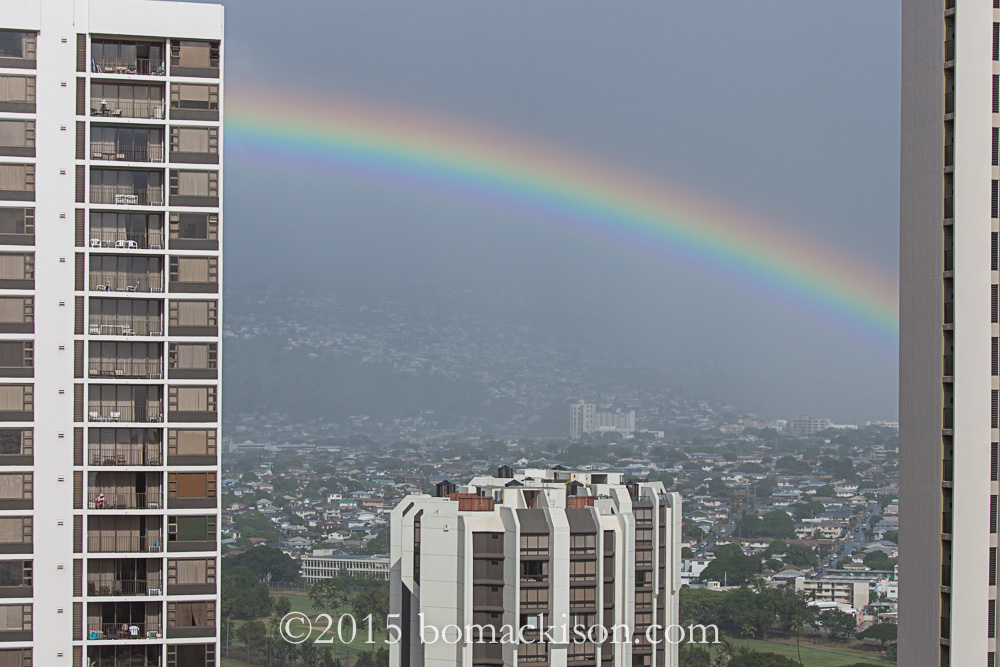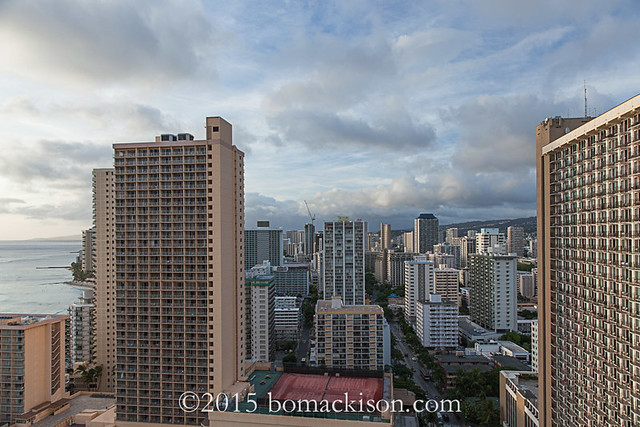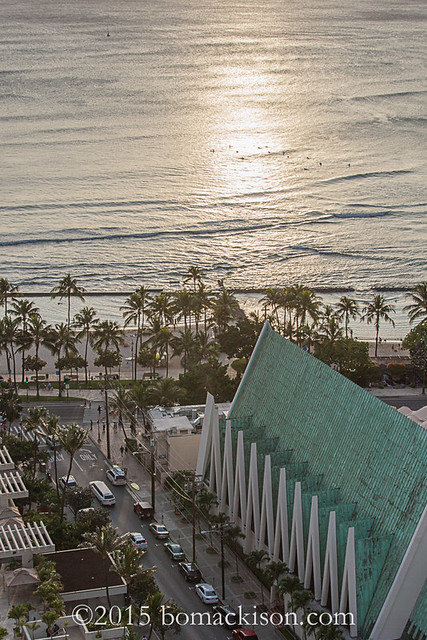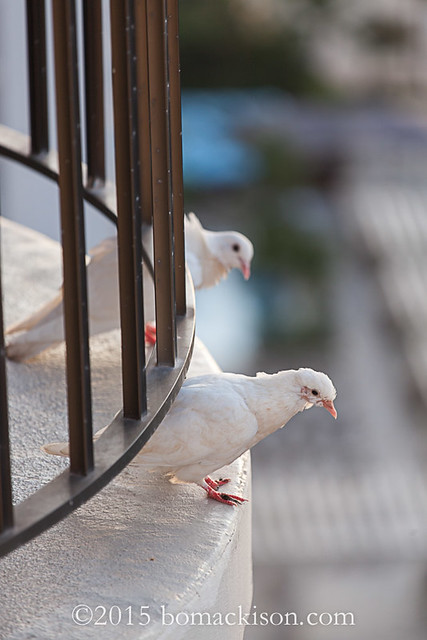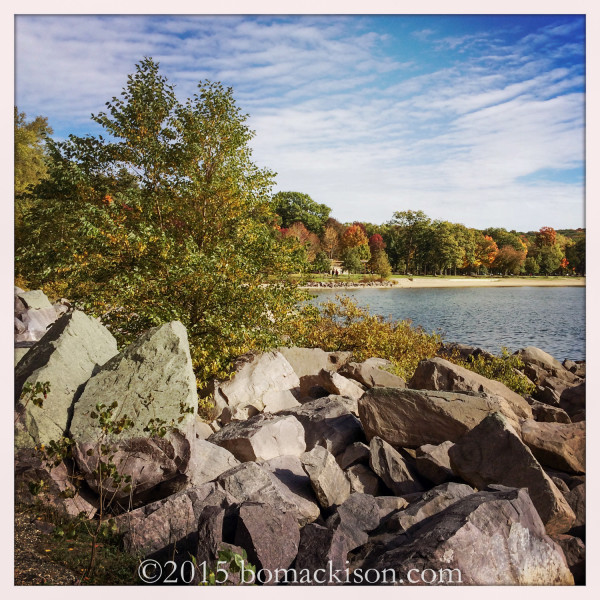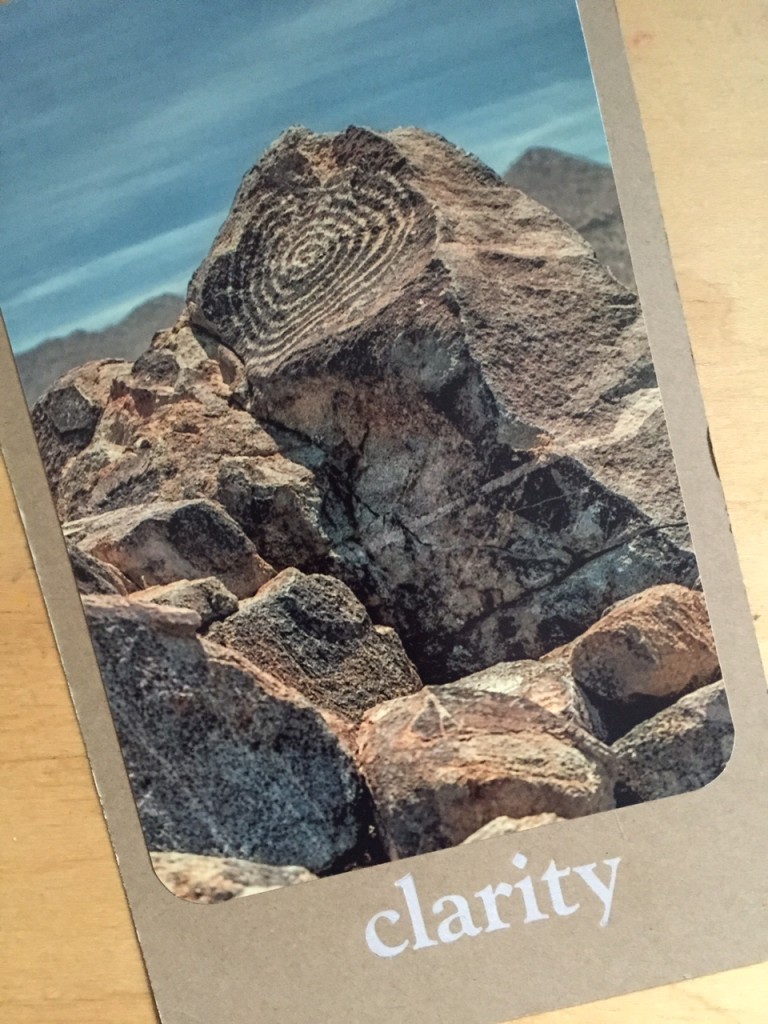Walking the streets of a major city (or truly, almost anywhere) there are opportunities to see art of all sorts — commissioned sculptures, carvings and paintings at restaurants and other establishments, even street art, dusty with footprints. In the rush to get from here to there, it’s easy to pass and not see the interesting, the unusual, that which adds a bit of beauty, novelty, or unexpected information to your day.
I walked along the shore of the Pacific Ocean from Waikīkī to Diamond Head and had opportunity to see a variety of sculptures, mosaics, wood carvings, murals, even stencil art on the sidewalks. Not all of the art I stopped to see was museum quality art, but every piece added flavor and dimension to my visit, offering a perspective of the city through a different lens.
The above sculpture – photographed on my way to Diamond Head, mid morning, without leis adorning the surfer and seal, and photographed again on my return, mid afternoon, adorned with the traditional leis. As a first time visitor to Hawaii, I remained fascinated at the frequency I saw leis used as a gesture of welcome – and not only to tourists as would be expected. Leis on business people, on people relaxing on the beach, and (photo proof) on sculptures.
The seal and surfer sculpture, titled Makua and Kila, is set into a rocky fountain on the beach promenade. It’s based on a children’s story by author Fred Van Dyke and weaves traditional Hawaiian values of respect for family and respect for the ocean into the story of friendship. (artist Holly Young)
Perhaps signage doesn’t qualify as art for many people, but when the sign includes a surf board, photography prints, and typography it goes on my list of that which is “interesting, unusual, adds a bit of beauty, novelty, or unexpected information” to my day. Upon reading a short list of facts about surfing I learned more than if I hadn’t read the list. Obviously.
Did you know that Mark Twain tried surfing on his visit to the Hawaiian islands in 1866 – unsuccessfully? Or that by the 1900s surfing had nearly died out, partly because of opposition from missionaries who thought time should be spent in more upstanding activities? That Waikīkī means “spouting water”? Or that the longest ride on the surf was by Duke Kahanamoku in 1917 who caught a 35″ wave and rode it 1 1/4 miles to shore? (He was an Olympic champion and the “father of surfing…”)
That’s what the sign says.
The statue of Mahatma Gandhi is located in Kapiolani Park in front of the Honolulu Zoo. It has a checkered past — or at least the donor of the statue has a checkered past — but the statue of Gandhi does catch your attention, located in the midst statues of Hawaiian kings, surfers, and dolphins.
Here’s a more typical statue, a preaching Saint Augustine standing near the church entrance that bears a longer name, St. Augustine by the Sea Catholic Church.
Incredibly, a (long) search through the halls of Google turned up exactly nothing about this specific statue. So…
And then the less serious, but equally fun art — the wooden carving and another lei.
And the hula dancer stenciled on the sidewalk and up a set of steps. I call it bread crumb art.
Follow the hula dancer and find breakfast!

